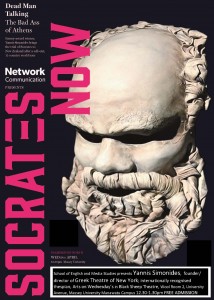Many skiers and snowboarders on Mt Ruapehu do not know how to get to safety if a potentially deadly lahar came rampaging down the mountainside, research from Massey graduate Leleiga Taito shows.
Source: Lahar awareness research will help save lives – Massey University
Many skiers and snowboarders on Mt Ruapehu do not know how to get to safety if a potentially deadly lahar came rampaging down the mountainside, research from Massey graduate Leleiga Taito shows.
It is believed to be the first international research that has documented a disconnect between safety information about lahars (the volcanic flow of ash, snow and rocks) and the key 18-30 year-old age group of young adventure sport enthusiasts.
“Many people didn’t know what a lahar is, or that they may have less than two minutes from the warning siren to escape,” Ms Taito says.
The Upper Hutt woman, who is the first in her family to graduate from university, will be conferred with a Bachelor of Communication honours degree (First Class) at the Michael Fowler Centre on Thursday.
Her research, investigating barriers at Whakapapa ski field that may be stopping young people from following safety instructions, was partly made possible by the awarding of a GNS Science scholarship arranged in partnership with Massey’s School of English and Media Studies and the Joint Centre for Disaster Research. It is hoped Massey students will help to develop further resources based on Ms Taito’s research to address the issue in the future.
There are plans also for Ms Taito’s findings to be used by GNS Science, the Department of Conservation and Ruapehu Alpine Lifts to communicate better with young skiers and snowboarders.
Twice-yearly tests of the Eruption Detection System over the past five years showed up to 50 people per test failed to get out of the valleys. Those people were asked to fill in a survey, which showed some didn’t know they were in danger zones, or thought they had traversed high enough out of the valleys to be out of danger.
Ms Taito had only ever been on the snow once, joking: “Samoans don’t do snow”. She spent three months working for the ski lift operator while living at Whakapapa village at Mt Ruapehu last winter. Describing herself as a “Samoan population of one”, she conducted in-depth research observing the behaviour of 257 mountain users and interviewing 29 of them about their awareness of lahar risk.
She found the sub-culture of young experienced snowboarders and skiers have their own lingo and use euphemisms that normalise crashing and unsafe behaviour on the mountain. They deal with serious situations such as accidents, hazards and emergencies using humour and friendly teasing.
“Skiing is such a hazardous sport and they become desensitized to the danger factor. They are there to have fun and don’t want to think about anything happening- they call it a buzz kill. Anti-authoritarian framing is the norm for a subculture such as adventure sports enthusiasts,” she says.
The research participants offered a range of safety suggestions, including better locational identification on trail maps and creating a cellphone app that provides safety information.
Ms Taito attended a pre-season briefing with emergency service staff from the mountain to share her insights. Her recommendations include better signage and using digital technology to inform and remind people they are on an active volcano and what to do when the lahar warning siren sounds.
“Young skiers and snowboarders’ love of speed could also be turned into a positive communication feature,” she says.
Safety communications could tap into their own group values by featuring a great skier speeding down the mountain contrasted with the speed of a lahar to show that nobody can outrun a lahar.”
After five years of study at Massey, Ms Taito is looking forward to visiting family in Australia, going back to the mountain to see her new snow buddies and looking for her first permanent communications’ job. But first of all there is going to be a big party this week when her large family celebrates her graduation. And she hopes to get her family up to the snow this ski season.

